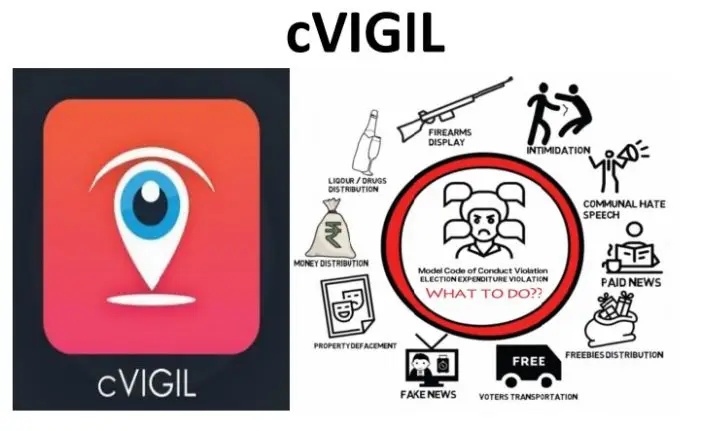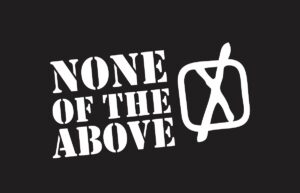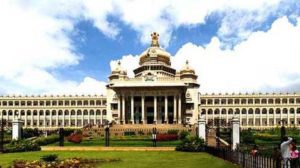Table of Contents
Model Code of Conduct (MCC) | An Analysis | UPSC – IAS
The origins of the Model Code of Conduct (MCC) lie in the Assembly elections of Kerala in 1960, when the State administration prepared a ‘Code of Conduct’ for political actors. For the 2019 Indian general election the code came into force on 10 March 2019 when the Commission announced the dates and remains in force till the end of the electoral process.
- It is a set of guidelines laid down by the Election Commission to govern the conduct of political parties and candidates in the run-up to an election. This is in line with Article 324 of the Constitution, which gives the Election Commission the power to supervise elections to the Parliament and state legislatures.
- It comes into force the moment an election is announced and remains in force till the results are declared. This was laid down by the Supreme Court in the Union of India vs. Harbans Singh Jalal and Others Case.
- It is intended to provide a level playing field for all political parties, to keep the campaign fair and healthy, avoid clashes and conflicts between parties, and ensure peace and order. So, there are guidelines on general conduct, meetings, processions, polling booths, observers, election manifesto of political parties.
- Its main aim is to ensure that the ruling party, either at the Centre or in the states, does not misuse its official position to gain an unfair advantage in an election. There are guidelines on conduct of ministers and other authorities in announcing new schemes, using public exchequer for advertisements etc.
Legal Status of Model Code
- The MCC is not enforceable by law. However, certain provisions of the Model Code of Conduct (MCC)may be enforced through invoking corresponding provisions in other statutes such as the Indian Penal Code, 1860, Code of Criminal Procedure, 1973, and Representation of the People Act, 1951.
- The Election Commission has argued against making the Model Code of Conduct (MCC)legally binding; stating that elections must be completed within a relatively short time (close to 45 days), and judicial proceedings typically take longer.
- On the other hand, in 2013, the Standing Committee on Personnel, Public Grievances, Law and Justice, recommended making the Model Code of Conduct (MCC)legally binding and the Model Code of Conduct (MCC)be made a part of the Representation of the People Act, 1951.
Main Points of the Model Code of Conduct | UPSC – IAS
- The government may not lay any new ground for projects or public initiatives once the Model Code of Conduct comes into force.
- Government bodies are not to participate in any recruitment process during the electoral process.
- The contesting candidates and their campaigners must respect the home life of their rivals and should not disturb them by holding road shows or demonstrations in front of their houses. The code tells the candidates to keep it.
- The election campaign rallies and road shows must not hinder the road traffic.
- Candidates are asked to refrain from distributing liquor to voters. It is a widely known fact in India that during election campaigning, liquor may be distributed to the voters.
- The election code in force hinders the government or ruling party leaders from launching new welfare programs like construction of roads, provision of drinking water facilities etc. or any ribbon-cutting ceremonies.
- The code instructs that public spaces like meeting grounds, helipads, government guest houses and bungalows should be equally shared among the contesting candidates. These public spaces should not be monopolized by a few candidates.
- On polling day, all party candidates should cooperate with the poll-duty officials at the voting booths for an orderly voting process. Candidates should not display their election symbols near and around the poll booths on the polling day. No one should enter the booths without a valid pass from the Election Commission.
- There will be poll observers to whom any complaints can be reported or submitted.
- The ruling party should not use its seat of power for the campaign purposes.
- The ruling party ministers should not make any ad-hoc appointment of officials, which may influence the voters in favor of the party in power.
- Before using loudspeakers during their poll campaigning, candidates and political parties must obtain permission or license from the local authorities. The candidates should inform the local police for conducting election rallies to enable the police authorities to make required security arrangements.
Contemporary Challenges in implementing Model Code of Conduct | UPSC – IAS
Emergence of new forms of electoral malpractices-
- Manipulation through the media – The misuse of the media is difficult to trace to specific political parties and candidates.
Weakened capacity of the ECI to respond to violations of MCC-
- Weak or Delayed Response– to inappropriate statements by powerful political actors. Consequently, political actors are regaining the confidence to flout the MCC without facing the consequences.
- Digital Content– Most of the [election-related] information flow does not happen via the IT cells of political parties, but through third-party contracts. Even though, the ECI has evolved a self-regulatory social media code for major players, still many platforms such as Telegram and WeChat are becoming increasingly relevant for political mobilization.
- Debate over some issues– such as national security, disaster management. Some political parties alleged that the ruling party has misused such issues. But, the Election Commission has said that these issues do not fall under the ambit of MCC.
Implications of Poll Code Violations |UPSC – IAS
- Weakens the position of Election Commission– whereby the credibility and authority of the commission is undermined.
- Abuse the principle of free and fair elections– whereby incidents such as use of money power or muscle power, does not allow equal competition between all participants.
- Shifts the narrative from performance to identity– whereby political parties ignore the MCC guidelines against using caste and communal feelings to secure votes.
- Erosion of public trust in Indian democracy– as the promise of free and fair elections is seemingly defeated.
A Way Forward | UPSC – IAS
- Need to include people in the MCC- through mobile apps such as ‘cVIGIL’ to enable citizens to report on violation of election code of conduct. If people reject candidates and parties that violate MCC, it will create an inherent pressure on contestants to abide by MCC.
- Fast Track Court for Election Dispute- so that whenever, the ECI takes a punitive action, its final order is obtained as soon as possible.
- Strengthening Election Commission of India- by greater transparency in appointments and removal of the election commissioners, reducing dependency on Central Government for paramilitary forces among others.




